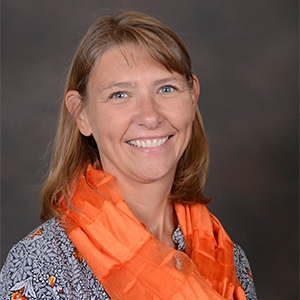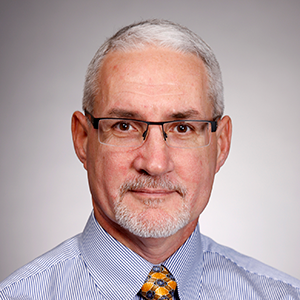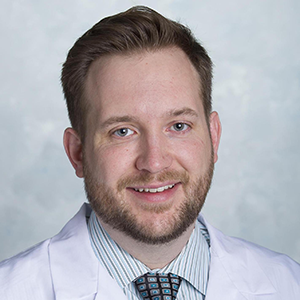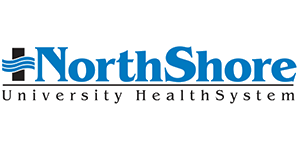Session Abstract – PMWC 2018 Michigan
Session Synopsis: Using pharmacogenomic data within the clinic is quickly becoming the standard of care for certain medication-gene pairs; and as research in pharmacogenomics continues to evolve, this data needs to be readily translated into clinic. Therefore, this session will outline some of this research and identify novel evidence based approaches being used to improve overall patient outcomes.
Session Chair Profile
PHARMD, Associate Dean for Research and Graduate Education, John Gideon Searle Professor of Translational Pharmacy, University of Michigan College of Pharmacy

Biography
Vicki L. Ellingrod, Pharm.D., FCCP is The John Gideon Searle Professor of Clinical and Translational Pharmacy in the Clinical Pharmacy Department in the College of Pharmacy, Professor of Psychiatry and Psychology. She obtained her BS and PharmD from the University of Minnesota and then completed a postdoctoral fellowship in psychopharmacology/pharmacogenetics at the University of Iowa. She then joined their faculty and completed a K08 training grant funded by NIMH (National Institute of Mental Health). In 2006, she joined the University of Michigan. Her research has primarily been funded by the NIMH, FDA, and industry sources and her work focuses on the pharmacogenomics of mental health treatments. Dr. Ellingrod is a founding member of the College of Psychiatric and Neurologic Pharmacists and a full member of the American College of Neuropsychopharmacology (ACNP). She also serves as scientific editor for Pharmacotherapy and is an editor on the DiPiro text book Pharmacotherapy, a pathophysiologic approach.
Speaker Profile
PHARMD, M.D., Director, Division of Clinical Pharmacology, Toxicology & Therapeutic Innovation, Department of Pediatrics, Children’s Mercy Hospital, Kansas City, MO

Biography
As Director of the Division of Clinical Pharmacology, Toxicology and Therapeutic Innovation at Children’s Mercy Kansas City, Dr. Leeder leads a group of clinicians and researchers committed to implementing precision therapeutics to improve the treatment of pediatric disease. His research focuses on characterizing the relative contributions of ontogeny and genetic variation to observed variability in drug response in children, and these efforts have coalesced into the GOLDILOKs initiative: Genomic- and Ontogeny-Linked Dose Individualization and cLinical Optimization for Kids, one of four Specialized Centers for Research in Pediatric Developmental Pharmacology supported by the Eunice Kennedy Shriver National Institute for Child Health and Human Development. Dr. Leeder holds the Marion Merrell Dow/Missouri Endowed Chair in Pediatric Clinical Pharmacology and serves Deputy Director of the Children’s Research Institute at CMH. He received his education and training at the University of Minnesota (PharmD) and University of Toronto (PhD).
Talk
Precision Therapeutics for Children: The GOLDILOKs Initiative
This presentation will raise awareness of the extent of variability in the dose-exposure relationship in children, its implications for addressing variability in therapeutic response, and present the Genomic- and Ontogeny-Linked Dose Individualization and cLinical Optimization for Kids (GOLDILOKs) initiative as a strategy to implement precision therapeutics in children.
Speaker Profile
Biography
Dr. Dunnenberger is Director of Pharmacogenomics in the Center for Molecular Medicine at NorthShore University HealthSystem (NorthShore), and leads the various clinical pharmacogenomics implementation projects within the Center for Personalized Medicine. The goal of these projects is to improve the care and health outcomes of NorthShore University HealthSystem patients through pharmacogenomics-based strategies. He joined NorthShore in 2014. Dr. Dunnenberger leads the Pharmacogenomics Clinic, which serves as part of a system-wide initiative building upon the health system’s strong foundation in genetics and molecular medicine. The Clinic is among only a few across the country, and the first of its kind in the Chicagoland area that pre-emptively screens patients for responses to medications based on genetic makeup. His clinical expertise and research interests include translating pharmacogenomics into clinical practice, developing information technology solutions for delivering genetic information to both clinicians and patients in a practical manner, and evaluating methods for educating healthcare professionals about pharmacogenetics Dr. Dunnenberger has co-authored sixteen original publications, including several CPIC guidelines. He earned his PharmD from the University of Tennessee Health Science Center College of Pharmacy in 2012. He completed a PGY1 Pharmacy Practice Residency at Mission Hospital in Asheville, North Carolina, and a PGY2 Clinical Pharmacogenetics Residency in the Department of Pharmaceutical Sciences at St. Jude Children’s Research Hospital in Memphis, Tennessee.
Talk
Implementing Pharmacogenomics in a Community Health System
This presentation will address key strategic and tactical decisions when implementing a clinic pharmacogenomics program. Using a community health system as a real world example, the audience will leave with practical knowledge they can apply at their workplace. Topics addressed will include necessary resources, laboratory testing, clinical decision support tools, and education.
Speaker Profile
PHARMD, Parkinsons Patient/ Davis Phinney Foundation Board Member
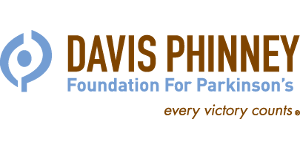
Biography
9 years ago, at the age of 48, I was diagnosed with Young Onset Parkinson’s Disease. After recovering from the shock of this diagnosis, I opted to embrace my disease. Having been trained as a clinician (PharmD- U of Michigan 1986) and a 30 year executive in the biopharma industry, I approach my disease with a unique involvement and curiosity at multiple levels. To quote Michael J Fox, “when you’ve seen a Parkinson’s patient, you’ve only seen one patient.” The issue is that no two PD patients are exactly alike, and this poses a dilemma in treating our tribe according to traditional clinical paradigms. This is where personalized medicine (PM) comes in. In the course of my presentation, I will share how my involvement in PM as a patient will both help me and others with this disease.
Talk
My Personalized Journey with Young Onset Parkinson’s Disease
This talk will cover the challenges of living with a multi symptom neurodegenerative disease where no two patients are alike. My attempts to treat and live well with Parkinson’s Disease through both personal and macro initiatives in personalized medicine. This includes my involvement in next generation Deep Brain Stimulation(DBS) research and patient advisory work (Biomarker, Longitudinal Crowd sourcing) with Stanford Medical School and the Michael J Fox Foundation.
Speaker Profile
PHARMD, Professor, College of Pharmacy, University of Minnesota

Biography
Dr. Jacobson is a Distinguished Professor and Associate Department Head in the Department of Experimental and Clinical Pharmacology in the College of Pharmacy, University of Minnesota and with a joint appointment in the Medical School’s Division of Hematology, Oncology and Transplantation. She received her PharmD from the University of Nebraska and completed her residency training at the University of Michigan. She was faculty at the University of Michigan, College of Pharmacy and then joined the University of Minnesota in 1998. Jacobson is a clinical pharmacologist where her research focuses on the clinical pharmacology of immune suppressants and anticancer agents. Specifically she studies how genetic variation influences drug pharmacokinetics, pharmacodynamics, efficacy and toxicity. She directs the Institute of Personalized Medicine, is co-PI of the Minnesota Precision Medicine Collaborative, and is a member of the Masonic Cancer Center, University of Minnesota.
Talk
Pharmacogenomics of Organ Transplantation
This talk will cover the discoveries made in pharmacogenomics to improve the use of immunosuppression in organ transplantation. Over- and under-immunosuppression can lead to serious consequences and/or loss of graft. Pharmacogenomics is a means to deliver tailored immunosuppression.


